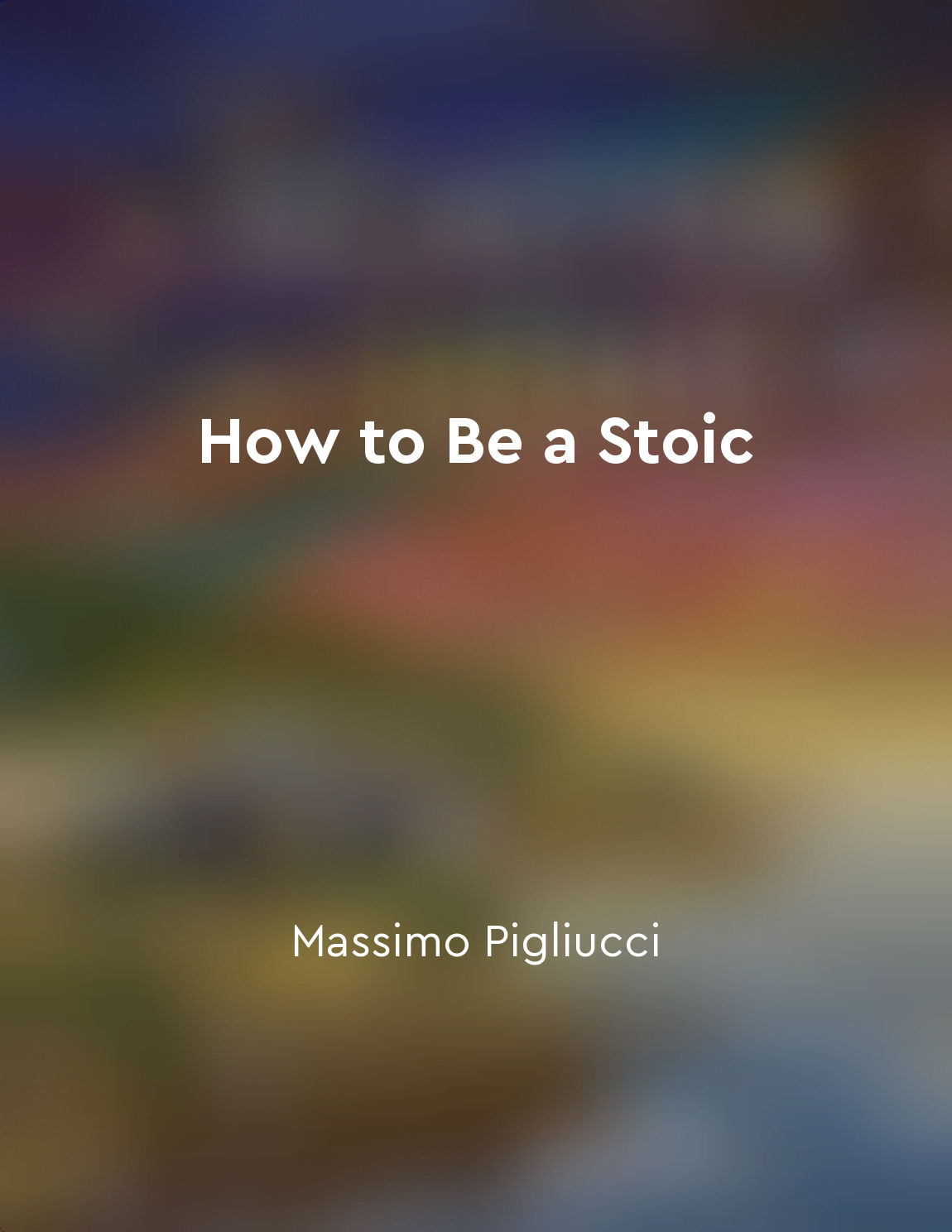Practice selfcontrol and emotional resilience from "summary" of How to Be a Stoic by Massimo Pigliucci
The Stoics were particularly interested in the concept of self-control and emotional resilience. They believed that our emotions are within our control, and that we have the power to choose how we react to external events. This doesn't mean that we should suppress our emotions or deny them; rather, we should acknowledge them and then choose how to respond in a rational and constructive way. One of the key exercises that the Stoics recommended in order to practice self-control and emotional resilience is negative visualization. This involves imagining the worst-case scenario in a given situation, in order to mentally prepare ourselves for it. By doing this, we can reduce our fear of negative outcomes and better handle adversity when it does occur. Another important aspect of self-control and emotional resilience is the practice of mindfulness. This involves being present in the moment and fully aware of our thoughts and emotions. By cultivating mindfulness, we can better understand our reactions and choose how to respond to them in a more intentional way. The Stoics also emphasized the importance of reason in guiding our actions and responses. They believed that by using our rational faculty, we can better evaluate situations and make decisions that are in line with our values and goals. This requires self-awareness and the ability to reflect on our emotions without being consumed by them.- Practicing self-control and emotional resilience is a lifelong journey that requires dedication and effort. By cultivating these virtues, we can become more resilient in the face of adversity and lead a more balanced and fulfilling life.
Similar Posts

Virtue is the highest good in Stoic philosophy
According to the Stoics, the highest good in life is virtue. This concept lies at the heart of their philosophy, guiding their ...

Stoics view challenges and obstacles as opportunities for growth and learning
The Stoics, with their emphasis on virtue and inner strength, approach challenges and obstacles in a unique manner that sets th...

Stoicism teaches individuals to embrace change and impermanence
The philosophy of Stoicism, as expounded by ancient thinkers such as Epictetus and Marcus Aurelius, emphasizes the acceptance o...
Stoics focus on cultivating a strong sense of purpose and meaning in life
Stoics believe that in order to live a fulfilling and meaningful life, one must have a clear sense of purpose. This purpose ser...

The Stoic idea of living in alignment with our values
Living in alignment with our values is a central concept in Stoicism. This idea entails ensuring that our thoughts, actions, an...

Happiness is a state of mind that can be cultivated
The idea that happiness is a state of mind that can be cultivated is a central tenet of Stoicism. This philosophy teaches us th...
Reason and logic were central to Stoic philosophy
Stoic philosophy was built on the idea that reason and logic were fundamental tools for understanding the world and living a go...

Practicing equanimity in the face of difficulties
Equanimity is a central concept in Stoic philosophy, which encourages individuals to maintain a sense of composure and tranquil...
Finding beauty and wonder in the world around us enhances our appreciation for life
As we journey through life, it can be easy to get caught up in the daily grind and lose sight of the beauty and wonder that sur...
The Stoic approach can lead to a more balanced life
The Stoic approach offers a unique perspective on how to navigate the complexities of life. By emphasizing the importance of vi...


